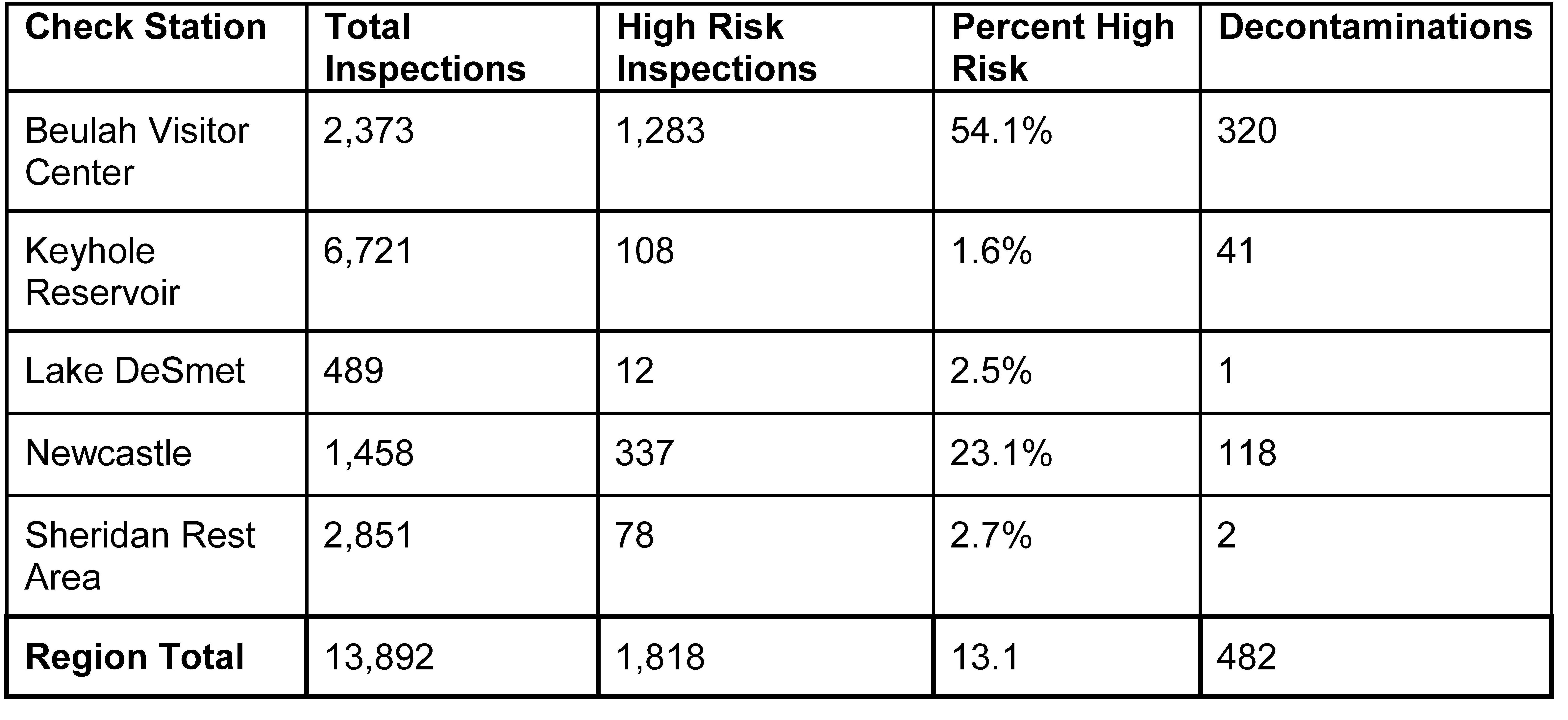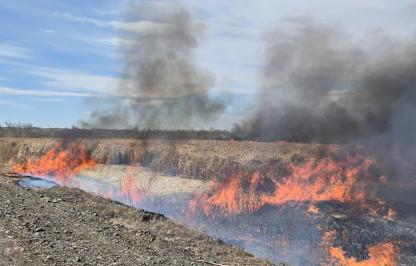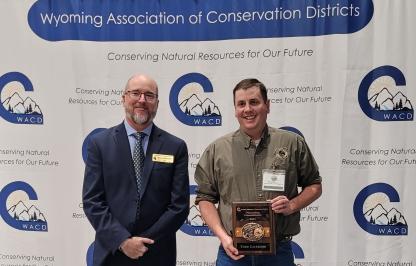Aquatic invasive species are plant or animal species that can cause substantial harm to ecosystems, municipal water supplies, recreation, agriculture and other commercial activities. The most worrisome AIS are zebra and quagga mussels, which are native to Eurasia and have tiny byssal threads that allow them to attach to hard substrates like watercraft hulls, rocks, docks or other infrastructure in the water.
To prevent the spread of AIS, watercraft check stations operated in the Sheridan Region from March 1 until November 30, 2023 and nearly 14,000 watercraft were inspected. Increased staffing allowed for the opening of a new check station in Newcastle and expanded hours of operations elsewhere.
After thorough inspections, 482 watercraft required a decontamination to eliminate the biological risk of contaminating the watercraft’s next water. The table below shows the majority of watercraft were decontaminated at Beulah and Newcastle as they entered from South Dakota, due to the high number of zebra mussel-positive waters there.

Watercraft check stations in the Sheridan Region will begin opening for the 2024 boating season in March. Any watercraft entering Wyoming by land from March 1 through Nov. 30 must be inspected prior to launching. During the entire year, any watercraft last on a zebra/quagga mussel water must be inspected prior to launching.
Wyoming is currently one of only five states in the contiguous U.S. that has no confirmed occurrences of zebra/quagga mussels. All of Wyoming’s bordering states except for Montana have known populations. With Pactola and Oahe reservoirs in South Dakota found to be infested in the last two years, the threat of an introduction continues to increase locally.
Although Wyoming does not have zebra/quagga mussels, it does have populations of other AIS including organisms like Asian clams, New Zealand mudsnails and curly pondweed. It is important to remember, always CLEAN, DRAIN, and DRY all of your gear when you go from one body of water to another to prevent the spread of these organisms.
- WGFD -



